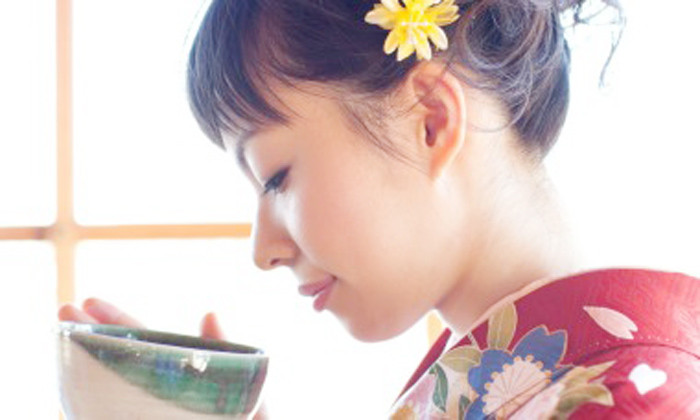The Japanese have always placed great importance on the balance between body, mind and spirit. That is why many Japanese principles can teach you how to find inner peace.
Wabi-sabi- Accepting imperfection
Most of us get frustrated when we don't achieve perfection in our work or love life. The Japanese philosophy of Wabi-sabi aims to encourage us to accept our imperfections while highlighting our strengths. Wabi-sabi emphasizes that all beauty in nature is "imperfect, impermanent and incomplete."
Mushin no shin - Mindless
This meditative state of mind may not be easy to achieve, but it is something everyone should strive for. Simply put, Mushin no shin encourages people to quiet their inner voices. Often, we tend to over-identify with our thoughts, which can create strong emotional reactions within ourselves. Mushin no shin, on the other hand, encourages you to let go of thoughts and judgments to create a relaxed awareness where the mind is clear and relaxed.

Illustration
Fudoshin - The Unmoving Mind
Life can be tough, there is no denying that. Fudoshin encourages you to find the resilience and courage to face the challenges that come your way. This includes finding calmness and total determination in the face of challenges. This unwavering will requires inner peace.
Shikata ga nai - Can't Avoid It
When each of us accepts our own suffering, we at least avoid creating more suffering for others. We acknowledge that there is no other way but to face it and accept it. According to the theory of Shikata ga nai, sometimes it is best to accept it in silence and peace, that way at least we can maintain our dignity.
Ikigai - Reason for Existence
We all want to find our purpose in life. A life without meaning is a “dead” life. Ikigai refers to that philosophy, urging you to discover what brings you fulfillment. When we do this, we find a sense of complete happiness from within.
Ikigai is a higher state of finding pure joy in life. The purpose of this philosophy is to create a good life, not a life filled with hedonistic things.
Gaman - Stoicism
This Japanese idea originates from Zen Buddhism and involves keeping your mind steady and controlling how you react. It means enduring the seemingly unbearable with patience and dignity.
Stoicism teaches you to embrace what you can control, see obstacles as opportunities, strive to cultivate inner peace, and live by your values. In Japanese culture, practicing stoicism is seen as a sign of maturity and strength. It involves everyday things like keeping personal matters to yourself, avoiding complaining, and remaining silent in the face of adversity.
Kaizen - Always looking for ways to improve
Kaizen is a term that encourages us to always change for the better and seek to continuously improve. This concept is especially used in the business world, where improved standards are seen as reducing waste and increasing efficiency. It also applies to any area of life where you want to encourage growth.
Shu-Ha-Ri - Repeat, Apply and Create
This concept represents the process of learning, on the path of mastery and creative application. It is a good model for learning in general. This philosophy teaches you to follow three steps: First, focus on what is taught and grasp it fully, then we can adjust and create based on the foundation that has been given.
Mono no aware - Love the impermanence
This philosophy reminds us that everything is for a limited time. Instead of feeling sad about the inevitable loss, we should cherish the time we have. This transformation represents the inevitable passing of time, and therefore must be welcomed with appreciation. As the West says, enjoy the best moments of life, while you are alive.
Mottainai - What a waste!
Mottainai conveys a sense of regret or concern about waste. And that's what the slogan "Reduce, Reuse, and Recycle" is all about. In Japan, making the most of something is considered noble, and it doesn't just apply to material things. It also means not wasting your gifts, talents, and abilities. This philosophy encourages us all to live life to the fullest and make the most of every opportunity we have.
Omoiyari - Thinking of Others
Many studies have shown that one of the keys to finding inner peace lies in how much we do for others. Giving makes us happy. Omoiyari reminds us to care for people and show them genuine care. This can be through volunteering to help, not necessarily money, but time, energy, words.
Shin-Gi-Tai - Balance between body and mind
This term translates to “mind, technique and body”, requiring the combination of all three to lead to success. The term reminds you to apply a strong spirit, well-executed skills and physical effort to accomplish anything. Instead of just jumping into action, we need to consider more between goals, abilities, before embarking on making it a reality.
Omotenashi - Providing the best service without expecting anything in return
Omotenashi, essentially, refers to hospitality in a thoughtful way. It is the attention to detail required to do a job well. It is done from the heart, not for reward or praise. This thoughtfulness is another way we show care for others.
Kiyomeru - Purification
The term Kiyomeru focuses on the purification of both the physical and immaterial worlds, or tidiness. Rather than being seen as a chore or demeaning task, cleaning is seen as a way to respect and honor your environment. In fact, cleaning is considered an important tool for meditating Buddhists to clear their minds.
According to VnExpress